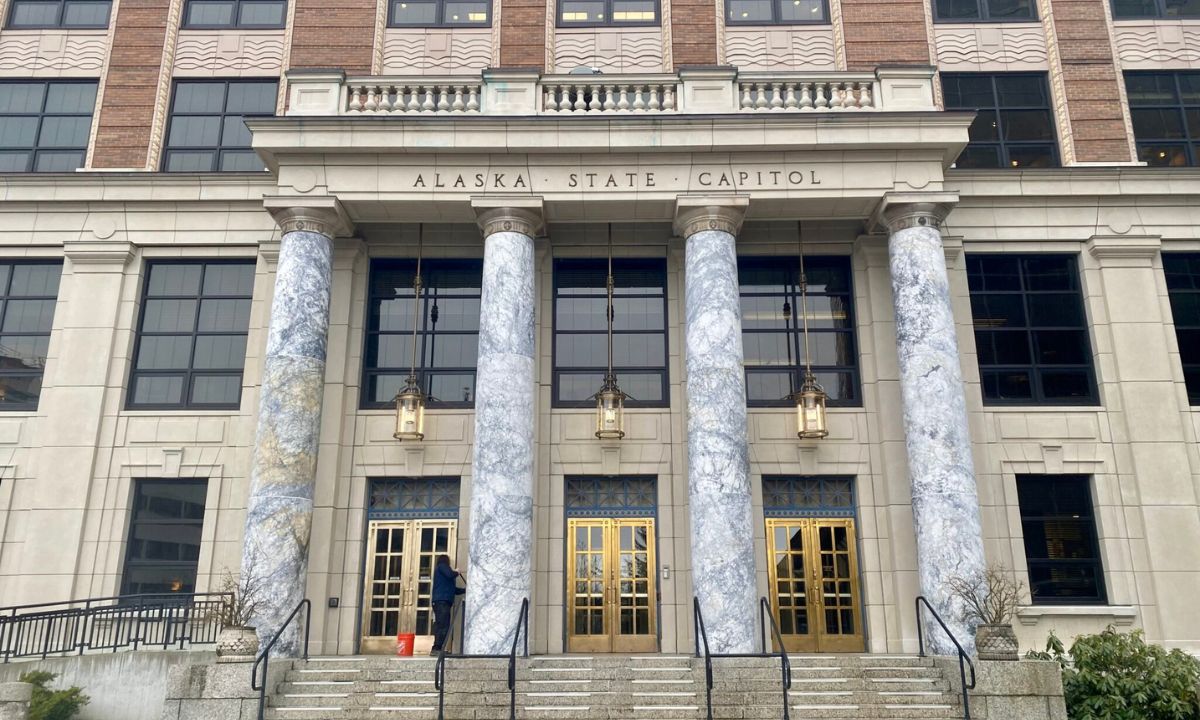Alaska students may be required to pass a civics test or take a civics course to graduate from high school if a new proposal becomes law.
Senate Bill 29 would significantly boost the state’s investment in civics education, from an updated curriculum to a dedicated statewide civics education commission.
Senate President Gary Stevens, R-Kodiak, proposed the updates in an effort to increase civic engagement and understanding of democracy among the state’s youth.
Get stories like these delivered straight to your inbox. Sign up for The 74 Newsletter
“There’s been a quiet epidemic, I think, in this country over the years — a sort of apathy and actually division,” said Stevens, a retired history professor. “For decades, we have focused on other issues, other than civics education, and certainly those have all been good issues. Math, science, reading, writing: All of those are important. But we’ve done that at the expense of social studies.”
The Senate passed the bill last May, sending it to the House.
On the measure’s first hearing in the House Education Committee, Stevens pointed out that preparation for active citizenship is a foundational principle of public education. He said strong policy is needed to show students that preparation for civic engagement is as important as preparation for college and career.
The bill would require the state’s Board of Education and Early Development to develop and maintain a statewide civics curriculum based on the federal naturalization exam immigrants must take to become citizens. Students would have to take a semester of civics or pass an exam to graduate high school.
The bill stipulates that, in addition to including information on how the United States and Alaska governments work, the curriculum must also include systems of government used by Alaska Native people.
John Pugh, a former University of Alaska Southeast chancellor, former Department of Health and Social Services commissioner and Air Force veteran, said he supports the bill because his personal and professional experience show how important it is for citizens to engage with their civic responsibilities.
“Over the years in the university, there’s strong research showing that individuals who do have this knowledge or take coursework in political science and government — that they do engage more than others who do not,” he said.
The upgrades would come at a cost, including the addition of a dedicated social studies content specialist and Alaska Civics Education Commission coordinator within the education department, as well as travel costs for the civics commission to meet.
Rep. Andi Story, D-Juneau, wanted to know why the bill does not call for additional money for school districts to pay staff to teach civics courses.
Stevens said the coursework in civics should be considered part of basic education.
“We’re giving billions to education,” he said. “We can expect our departments, our school districts, our teachers to provide basic education, which is citizenship. So I think that’s just a responsibility of the department of education and a responsibility of the budget we give to them.”
Co-chair Rep. Jamie Allard, R-Eagle River, mentioned that Sen. Click Bishop, R-Fairbanks, took the proposed civics test and got a perfect score. She said the bill will be heard again in the House Education Committee for amendments and public testimony. It has not yet been scheduled.
Alaska Beacon is part of States Newsroom, a nonprofit news network supported by grants and a coalition of donors as a 501c(3) public charity. Alaska Beacon maintains editorial independence. Contact Editor Andrew Kitchenman for questions: info@alaskabeacon.com. Follow Alaska Beacon on Facebook and Twitter.
